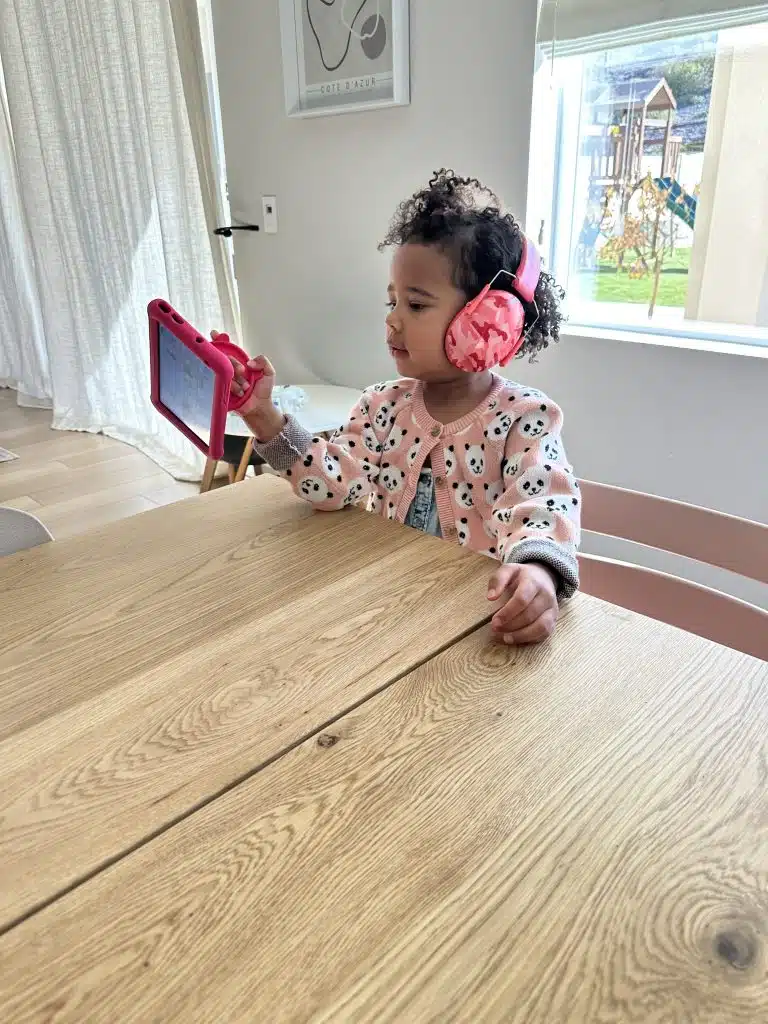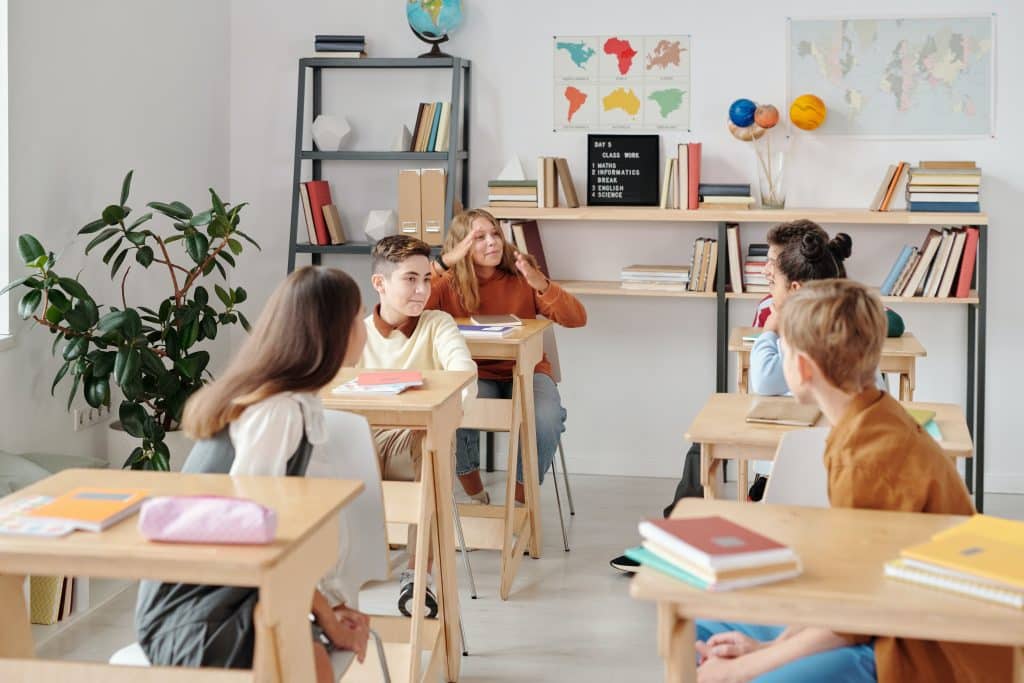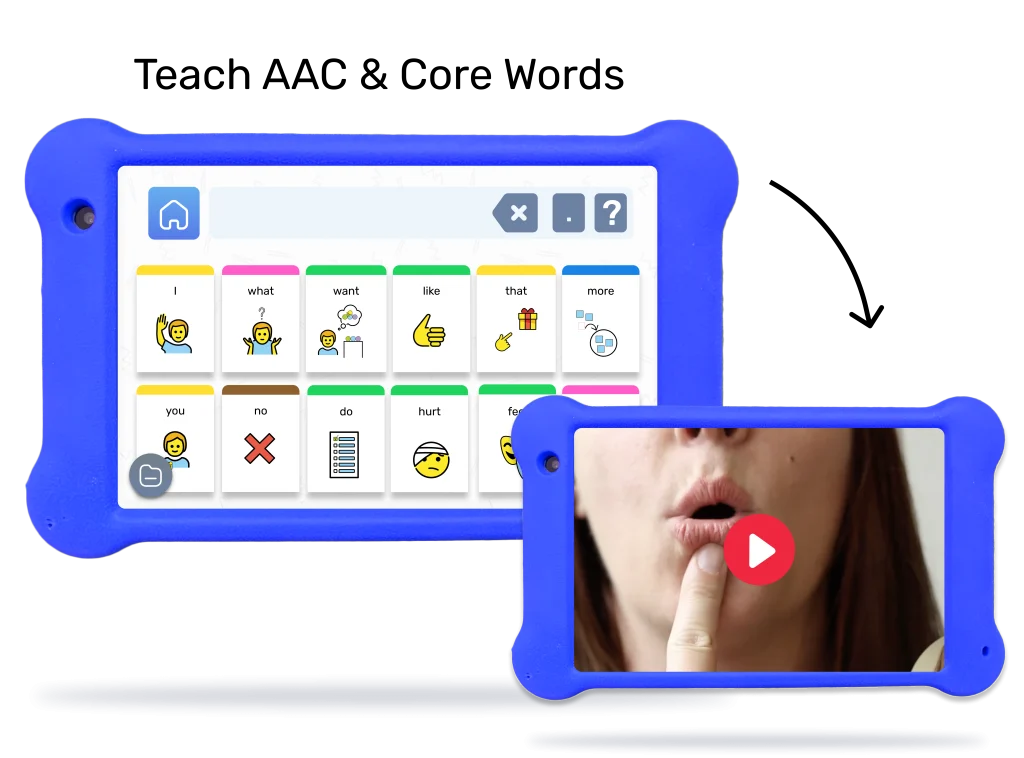Acquiring useful language by age 5 has been identified as a strong predictor of positive outcomes in individuals with ASD. We understand that each child with autism is unique, and their communication journey differs. Today, we’re exploring the signs your autistic child will talk and offering tips for both you and your little one to better understand and communicate with each other. Let’s get started!
Table of Contents
Every Child is Different
Understanding the Spectrum of Communication Abilities in Autism
Autism affects children differently – especially when it comes to communication skills. Some kids may develop speech early on, while others might take more time or rely on alternative methods to express themselves.
Factors Influencing Language Development in Autistic Children
Several factors impact how an autistic child develops speech: genetics, environment, therapy access, and individual personalities play a part here. Embrace their uniqueness! Be patient as they progress at their own pace; provide tailored support based on your child’s specific needs. This way, you’ll see the best results!

“I found Goally on Instagram a few months ago and I thought, this sounds like a perfect aid for Ivy. Ivy had just started speaking, but her communication was still very minimal. Goally’s visual schedule and AAC-inspired Talker had me really interested. While we want and believe Ivy will find her voice and spoken language, we also believe that communication comes in many forms. Goally has helped us offer our daughter a voice while she learns to find her own. The key is to support communication in whatever form that takes.” – Cassidy I.
Phrase Speech Development: Signs Your Autistic Child Will Talk
The Role of Phrase Speech in Language Acquisition
Phrase speech marks an important milestone when simple words combine into meaningful expressions like “want juice” or “go park.” This stage paves the way for more complex sentence structures later on.
Examples & Indicators of Emerging Phrase Speech
Keep an eye out for these clues: repetition of short phrases or echoing what others say (echolalia), combining two words meaningfully (“mommy up”), or using familiar phrases during playtime.
Tips To Encourage Phrase Speech Growth
- Create opportunities for conversation by responding promptly.
- Introduce new vocabulary through books & daily activities.
- Use visual aids like flashcards or social stories.
- Engage in fun games that require verbal interaction.
- And most importantly – celebrate every tiny victory along the way!
Together, we can help our kids overcome challenges by embracing their unique paths toward finding their voice! Keep going strong because every child deserves a chance to communicate and connect with the world around them.
“Which language games will help my kid the fastest?” 👇
Goally’s tablet has some of the top language learning games & apps that help kids learn their first 50 words, practice finger dexterity & fine motor skills, AND communicate with AAC.
Fluent Speech Development: Signs Your Autistic Child Will Talk
What Fluent Speech Looks Like for an Autistic Child
Fluent speech in autistic children might differ from what you’d expect! It’s more about clear and consistent communication – effectively expressing thoughts, feelings, and needs.
Signs That Indicate Progress Toward Fluent Speech
Watch for improvements like increased vocabulary, better sentence structure or grammar usage, more expressive tones, or reduced echolalia – these are all positive indicators!
Supporting Your Child on Their Path to Fluency
- Keep conversations engaging by asking open-ended questions.
- Use visual aids such as social stories to reinforce language skills.
- Be patient and allow extra time for them to process information and respond.
- Most importantly – be their biggest cheerleader along this journey!
Tips For Parents To Understand If Or When Their Autistic Child Will Talk: Signs Your Autistic Child Will Talk

Read More: What Not to Do With an Autistic Child
Observing Subtle Cues & Nonverbal Communication
Even if they’re not talking yet, pay attention to body language: gestures, facial expressions, or eye contact can reveal a lot about their communication abilities.
Seeking Professional Guidance (Speech Therapists):
Don’t hesitate to reach out for help! Speech therapists can assess your child’s progress and provide invaluable guidance on how best to support them moving forward.
Encouraging a Language-Rich Environment at Home
Expose your little one to various forms of communication through books, songs, and games – the more opportunities they have to hear and practice language skills daily, the better!
Being Open to Alternative Forms of Communication
Remember that spoken words aren’t the only way; sign language or assistive devices such as voice output devices may also help unlock your child’s potential to communicate with you effectively.
As Goally parents supporting our kids’ unique paths toward finding their voice is crucial – so let’s stay optimistic while embracing patience & understanding every step of the way!
Tips For Kids On How To Communicate With Parents

Read more: When Do Kids Learn to Read?
Expressing Emotions Through Non-Verbal Means (Body Language, Facial Expressions)
Even without words, kids can convey a lot! Please encourage your child to use gestures, facial expressions, or body language to share their feelings and needs.
Practicing Using Simple Words or Phrases
Start small – practicing one-word answers or short phrases can help build confidence in your child’s communication skills!
Exploring Assistive Technology Options
For some children, devices like speech-generating apps or picture communication systems make a difference; explore what works best for your little one.
Building Confidence in Self-Expression Through Fun Activities
Incorporate creative outlets like art, music, or dance into daily routines – these activities allow your child to express themselves while having a great time!

Goally | Teach Kids AAC & Core Words
Is your child facing challenges in expressing themselves or communicating effectively? Goally’s language apps support their journey in building essential communication skills! All of these apps are included our skill-building tablet made for kids.

The Word Lab and AAC Talker apps provide a simple, engaging platform for your child to learn core words and become a functional communicator right from the start. Customize the experience with a voice that suits them, and watch as their confidence grows in expressing their thoughts and needs!
But we don’t stop there. Our Balloon App helps build the skills needed to use AAC by engaging your child with fun, interactive “pop the balloons” exercises. It’s a game-changer for kids who need that extra boost in communication.
We hope this guide provides valuable insights into recognizing the signs your autistic child will discuss while supporting them on their unique communication journey! Remember, Goally parents – patience, understanding, and encouragement go a long way when it comes to assisting your child find their voice. Keep celebrating every step forward as they grow and develop new ways of connecting with the world around them! Happy parenting!
This post was originally published on 04/03/2023. It was updated on 11/22/2023.

Goally
We help parents teach their kids life skills, like doing bedtime and morning independently. Backed by science, we incorporate evidence-based practices and expert-informed designs in all of our apps and content.






